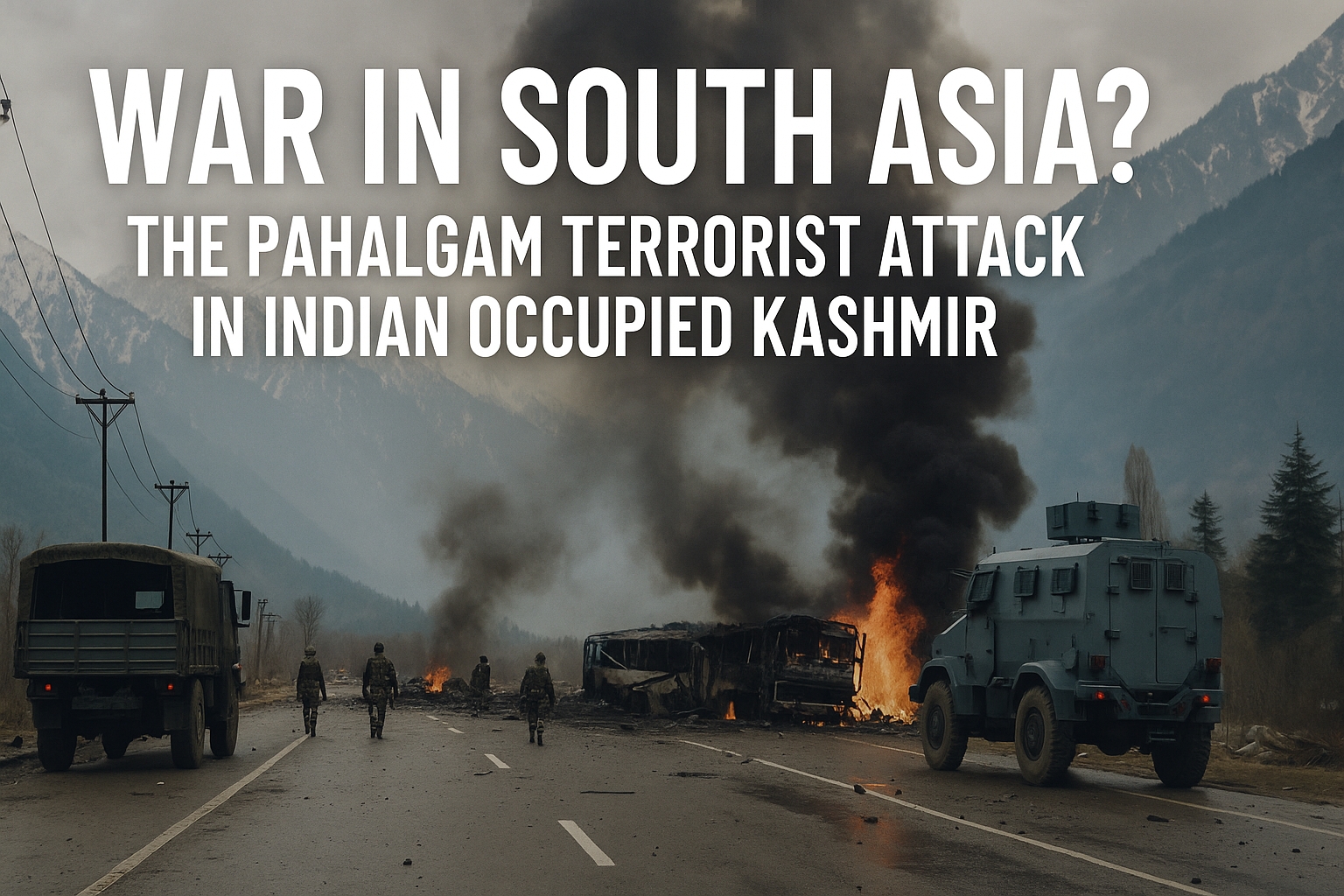Why Kashmir Solidarity Day Matters?
Empowering Weak & OppressedTahir Mahmoud
Jumada' al-Akhirah 19, 1442 2021-02-01
News & Analysis
by Tahir Mahmoud (News & Analysis, Crescent International Vol. 49, No. 12, Jumada' al-Akhirah, 1442)
Among oppressed Muslims worldwide, two groups of people have lived the longest under foreign occupation: the Kashmiris and Palestinians. Both are victims of British colonial intrigue that handed their territory to alien occupiers.
Kashmir—or, to use its full name, the State of Jammu and Kashmir (J&K)—went under India’s illegal occupation on October 27, 1947 when Indian troops invaded and occupied the state. Palestine’s fate was sealed when a General Assembly vote in November 1947 handed 56 percent of Palestinian lands to Jewish immigrants to Palestine that constituted 30 percent of the population.
Among many other events, February 5 has been officially observed as Kashmir Solidarity Day in Pakistan since 2004. It is a holiday. Seminars, conferences, rallies and other events are organized to draw attention to India’s illegal occupation of two-thirds of the state (one-third is with Pakistan where the Kashmiris enjoy a considerable measure of autonomy). There is little doubt that Kashmiris do not wish to remain under Indian occupation.
For decades, the Kashmiris have protested against Indian occupation forces, that number almost one million, despite indescribable brutality inflicted on them. It is in this context that the Kashmir Solidarity Day assumes great importance.
Despite many other trouble spots in the world, the Kashmiris’ plight cannot be overlooked. In the spirit of solidarity, seminars (webinars this year) are also organized in other parts of the world including Canada, the US and Europe.
Officially called Yaum-e Yekjehti Kashmir, it was first proposed by the leader of the Jama‘at-e Islami, the late Qazi Hussain Ahmed in 1990. It was then observed in 1991 but became an official event in 2004.
On January 31, 2004, Pakistan’s Federal Minister for Kashmir and Northern Area Affairs announced at a news conference that the people and the Government of Pakistan would demonstrate on this day (February 5) their solidarity with the aspirations of the people of Kashmir. It was meant to convey the message to the Kashmiri people as well as the world that Pakistan would continue to support the Kashmiris’ right to self-determination as enshrined in more than 11 Security Council resolutions.
According to the Kashmiri journalist Gowhar Geelani, quoting the Srinagar-based international law expert, Dr Sheikh Showkat Hussain, wrote in February 2017 that Kashmir Day has been observed historically right from 1932. It was first proposed by the then Kashmir Committee.
“In the 1930s, the day was observed to express camaraderie with the Kashmiris’ struggle against the autocratic Dogra ruler Maharaja Hari Singh. In present day context, Kashmir Day is being celebrated to show solidarity with the struggle of Kashmiris against India,” Sheikh Showkat said.
“Basically, it [Kashmir Day] started from undivided Punjab and it has been celebrated ever since, with pauses in between. This day will continue to hold importance until the Kashmiris achieve their objective of right to self-determination.”
The right to self-determination is a fundamental right of every human being. This has been denied the Kashmiri people since 1947. According to the partition plan of British-ruled India, Muslim majority areas were to constitute Pakistan while Hindu majority areas would become part of India. This formula was accepted by the leaders of the two movements—the All-India Muslim League that led the Pakistan movement and Indian National Congress that represented Hindu sentiment. Yet the Indian Congress in connivance with the British violated this agreement in the case of Kashmir.
The people of Jammu and Kashmir who were overwhelmingly Muslim, had no doubt that they would become part of Pakistan. After all, not only the people’s sentiment but even their culture, geography, history and physical links, such as postal service, telegraph etc were all with Pakistan.
When the Kashmiris saw that their ruler Hari Singh was prevaricating in joining Pakistan, they rose up in revolt. He fled the state capital Srinagar and sought India’s military help to quell the people’s uprising. It is said that in return for Indian help, he was asked to sign the Instrument of Accession to India.
There are several problems with this version. First, nobody has seen the Instrument of Accession. Second, the ruler having fled the state capital, and thus lost control of the government, had no authority to sign away the future of the state against the wishes of the people. Third, the Indian rulers repeatedly stated that this was a temporary arrangement and as soon as law and order were restored, the people of Kashmir would be given the right of self-determination.
Being completely duplicitous and compulsive liars, successive Indian rulers have since reneged on this pledge. Neither the Kashmiri people nor Pakistan, however, have forgotten this. Moreover, at least 11 UN Security Council resolutions affirm the Kashmiris’ right of self-determination.
While Pakistan Solidarity Day is observed worldwide, it is imperative that in Pakistan much greater effort is made to instill the importance of the Kashmir issue in the psyche of the people, particularly among students. Kashmir should be taught as a compulsory subject in schools and colleges. Further, its importance for the very survival of Pakistan should be emphasized.
Kashmir should become the living, breathing experience of every Pakistani man, woman and child. Its liberation from the clutches of Indian tyranny should be as important to every Pakistani as the well-being of their own families.


